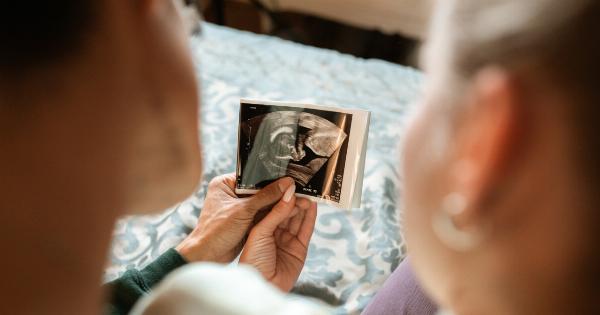Bringing a new life into the world is often considered a joyous and exciting time. However, pregnancy can also bring about a range of emotions, and for some women, it can lead to the development or worsening of depression.
Depression during pregnancy, also known as antenatal depression, is a serious condition that requires attention and support. In this article, we will explore what you need to know about depression during pregnancy, its causes, symptoms, and treatment options.
What Is Depression During Pregnancy?
Depression during pregnancy is a mental health condition characterized by persistent feelings of sadness, hopelessness, and a loss of interest or pleasure in activities. It is similar to depression outside of pregnancy but occurs in expectant mothers.
While mood swings and hormonal fluctuations are common during pregnancy, depression is different and can significantly impact a woman’s well-being and functioning.
Causes of Depression During Pregnancy
The exact causes of depression during pregnancy are not fully understood. However, several factors may contribute to its development, including:.
Hormonal Changes
Hormonal fluctuations during pregnancy can affect brain chemicals that regulate mood, leading to depressive symptoms.
The rapid increase and changes in hormones, such as estrogen and progesterone, can disrupt the delicate balance in the brain and trigger depression.
Personal or Family History of Depression
Women with a personal or family history of depression are more susceptible to experiencing depression during pregnancy.
A history of depression, anxiety, or other mental health disorders increases the risk and should be taken into account when assessing potential antenatal depression.
Stress and Life Events
Pregnancy can bring about various stressors, such as financial concerns, relationship difficulties, and changes in lifestyle. These stressors combined with the physical and emotional changes of pregnancy can contribute to the development of depression.
Unplanned or Unwanted Pregnancy
Unplanned or unwanted pregnancies can lead to feelings of distress, guilt, and anxiety, which may contribute to the onset of depression.
The emotional strain associated with navigating this situation can impact a woman’s mental health during pregnancy.
Signs and Symptoms of Depression During Pregnancy
Recognizing the signs and symptoms of depression during pregnancy is crucial for early intervention and treatment. Although the experience may vary from woman to woman, common signs and symptoms include:.
1. Persistent Sadness
A persistent feeling of sadness, emptiness, or hopelessness that doesn’t seem to lift can be a sign of depression during pregnancy. This feeling may persist for most of the day and may not be triggered by any particular event.
2. Loss of Interest or Pleasure
Participating in activities that were once enjoyable may no longer spark interest or pleasure. Hobbies, socializing, or even spending time with loved ones may feel burdensome or unappealing.
3. Changes in Appetite
Depression during pregnancy can lead to significant changes in appetite. Some women may experience a decrease in appetite and weight loss, while others may find comfort in emotional eating, leading to weight gain.
4. Sleeping Difficulties
Sleep disturbances, including insomnia or excessive sleeping, can occur in women experiencing depression during pregnancy.
You may find it challenging to fall asleep, stay asleep throughout the night, or feel excessively tired during the day despite getting enough rest.
5. Fatigue and Lack of Energy
Feeling exhausted or fatigued, even after minimal physical or mental exertion, is another common symptom of antenatal depression.
The lack of energy may make it difficult to perform daily tasks, leading to a sense of frustration and a decrease in productivity.
6. Difficulty Concentrating
Depression during pregnancy can impair your ability to focus, concentrate, make decisions, or remember details. You may feel mentally foggy or that your thoughts are scattered, making it challenging to engage in work or personal activities effectively.
7. Feelings of Guilt or Worthlessness
Women with depression during pregnancy often experience unfounded feelings of guilt, worthlessness, or self-blame. These negative emotions may be unrelated to any specific event or circumstance and can significantly impact a woman’s self-esteem.
8. Intense Anxiety or Irritability
Depression during pregnancy is sometimes accompanied by heightened levels of anxiety or irritability. Small stressors may trigger intense and disproportionate feelings of worry or irritability, which can strain relationships and daily functioning.
9. Thoughts of Self-Harm or Suicide
In severe cases, depression during pregnancy may lead to thoughts of self-harm or suicide. If you experience thoughts of self-harm or suicide, it is crucial to seek immediate help from a healthcare professional or a helpline.
10. Withdrawal and Social Isolation
Feeling socially withdrawn or isolated is a common symptom of depression during pregnancy. You may intentionally avoid social interactions, withdraw from family and friends, or feel a sense of disconnection from your loved ones.
Seeking Help and Treatment Options
If you suspect you or someone you know is experiencing depression during pregnancy, it is essential to seek professional help.
A healthcare provider, such as an obstetrician, gynecologist, or mental health professional, can provide a proper diagnosis and recommend appropriate treatment options.
Treatment options for depression during pregnancy may include:.
1. Therapy
Talk therapy, such as cognitive-behavioral therapy (CBT), can help pregnant women identify and challenge negative thought patterns and develop healthy coping strategies.
Therapy provides a supportive and safe space for women to express their emotions and concerns.
2. Support Groups
Participating in support groups specifically tailored for pregnant women with depression can provide a sense of community and understanding.
Sharing experiences, receiving support from others who can relate, and gaining insights from group discussions can be beneficial.
3. Medication
In severe cases, medication may be considered if the benefits outweigh the potential risks. Antidepressant medications can be prescribed by a healthcare professional experienced in treating depression during pregnancy.
It is vital to discuss the potential risks and benefits with your healthcare provider to make an informed decision.
4. Lifestyle Changes
Simple lifestyle modifications can also contribute to managing depression during pregnancy.
Regular physical exercise, a healthy and balanced diet, sufficient sleep, and stress reduction techniques like mindfulness or relaxation exercises may help alleviate symptoms.
5. Social Support
Surrounding yourself with a strong support system, including your partner, family, and friends, can make a significant difference in managing depression during pregnancy.
Openly discussing your feelings and seeking emotional support is essential for your well-being.
Conclusion
Pregnancy is a transformative and challenging time, both emotionally and physically. Depression during pregnancy can cast a shadow on what is supposed to be an exciting chapter in a woman’s life.
However, with early recognition and appropriate support, depression during pregnancy can be successfully managed, allowing women to embrace motherhood with enhanced mental well-being. If you suspect you or someone you know is experiencing depression during pregnancy, do not hesitate to seek help and support from healthcare professionals who can guide you on the path to recovery.



























